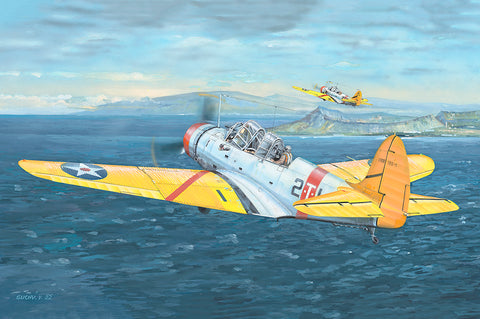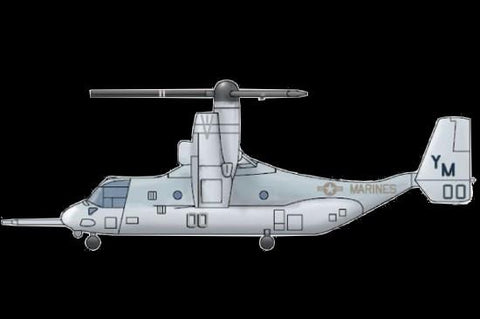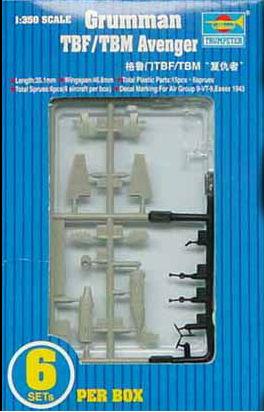
Trumpeter 1/72 Tu128UT Fiddler Russian Training Version Supersonic Interceptor (New Variant) Kit
Estimated Shipping: 2-3 Business Days
The Tupolev Tu-28 (NATO reporting name Fiddler) was a long-range interceptor aircraft introduced by the Soviet Union in the 1960s. The official designation was Tu-128, but this designation was less commonly used in the West. It was the largest and heaviest fighter ever in service. Tu-128UT (also known as Tu-28UT) was built - it was a training version with an additional cockpit forward of the normal one, in place of radar. ten built and four converted from standard interceptors.
The Tu-128, with its maximum weight of 43 tons, was the heaviest fighter to enter service. It was a bomber-interceptor with high wing loading, unsophisticated but reliable avionics and poor visibility. It was not an agile aircraft. It was intended to combat only NATO bombers like the B-52, not engage in dogfights with smaller aircraft. The interceptor made its initial public appearance in the 1961 Tushino air parade. Western experts, unaware that the bulge on the belly carried testing instruments, mistook it for a large ventral radar for a mixed interceptor/AWACS role. The production version lacked the bulge and had a large nose radome housing a radar, known as RP-S Smerch, having a detection range of about 50 km (31 mi) and a lock-on range of about 40 km. The Tu-128's only publicly reported combat operation was the destruction of NATO reconnaissance balloons. The aircraft remained in service until 1990. Through the 1980s, units armed with the Tu-128 converted to the Mikoyan MiG-31, which features much more advanced sensors and weapons.
The Tu-128, with its maximum weight of 43 tons, was the heaviest fighter to enter service. It was a bomber-interceptor with high wing loading, unsophisticated but reliable avionics and poor visibility. It was not an agile aircraft. It was intended to combat only NATO bombers like the B-52, not engage in dogfights with smaller aircraft. The interceptor made its initial public appearance in the 1961 Tushino air parade. Western experts, unaware that the bulge on the belly carried testing instruments, mistook it for a large ventral radar for a mixed interceptor/AWACS role. The production version lacked the bulge and had a large nose radome housing a radar, known as RP-S Smerch, having a detection range of about 50 km (31 mi) and a lock-on range of about 40 km. The Tu-128's only publicly reported combat operation was the destruction of NATO reconnaissance balloons. The aircraft remained in service until 1990. Through the 1980s, units armed with the Tu-128 converted to the Mikoyan MiG-31, which features much more advanced sensors and weapons.
- 130+ Parts
- Including photo-etch and clear parts















